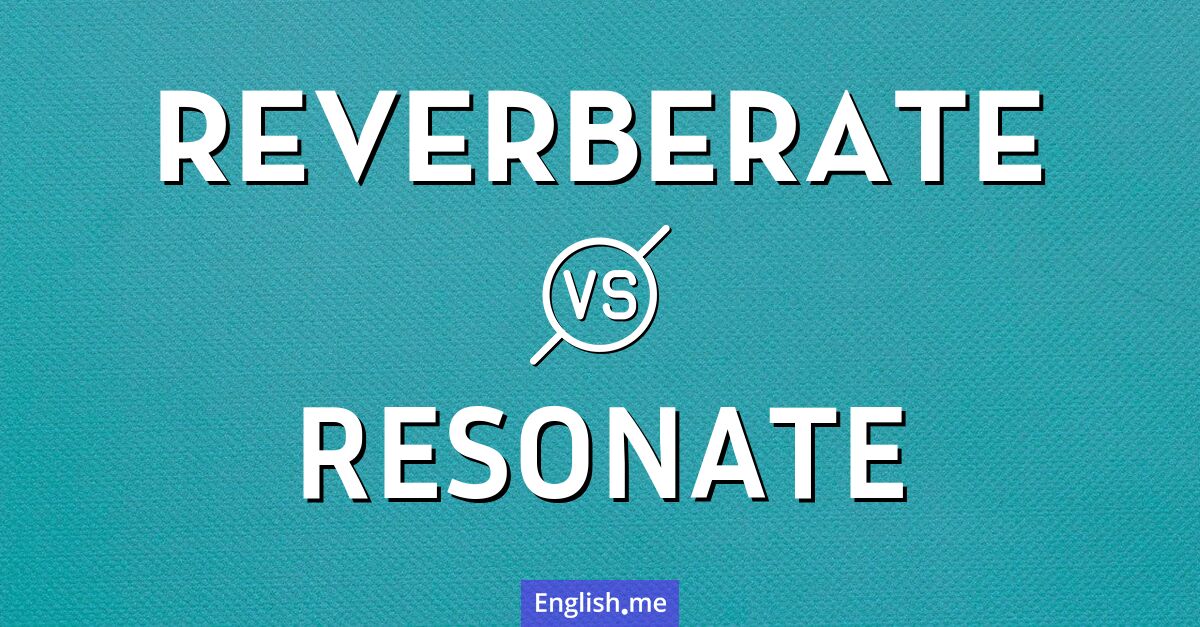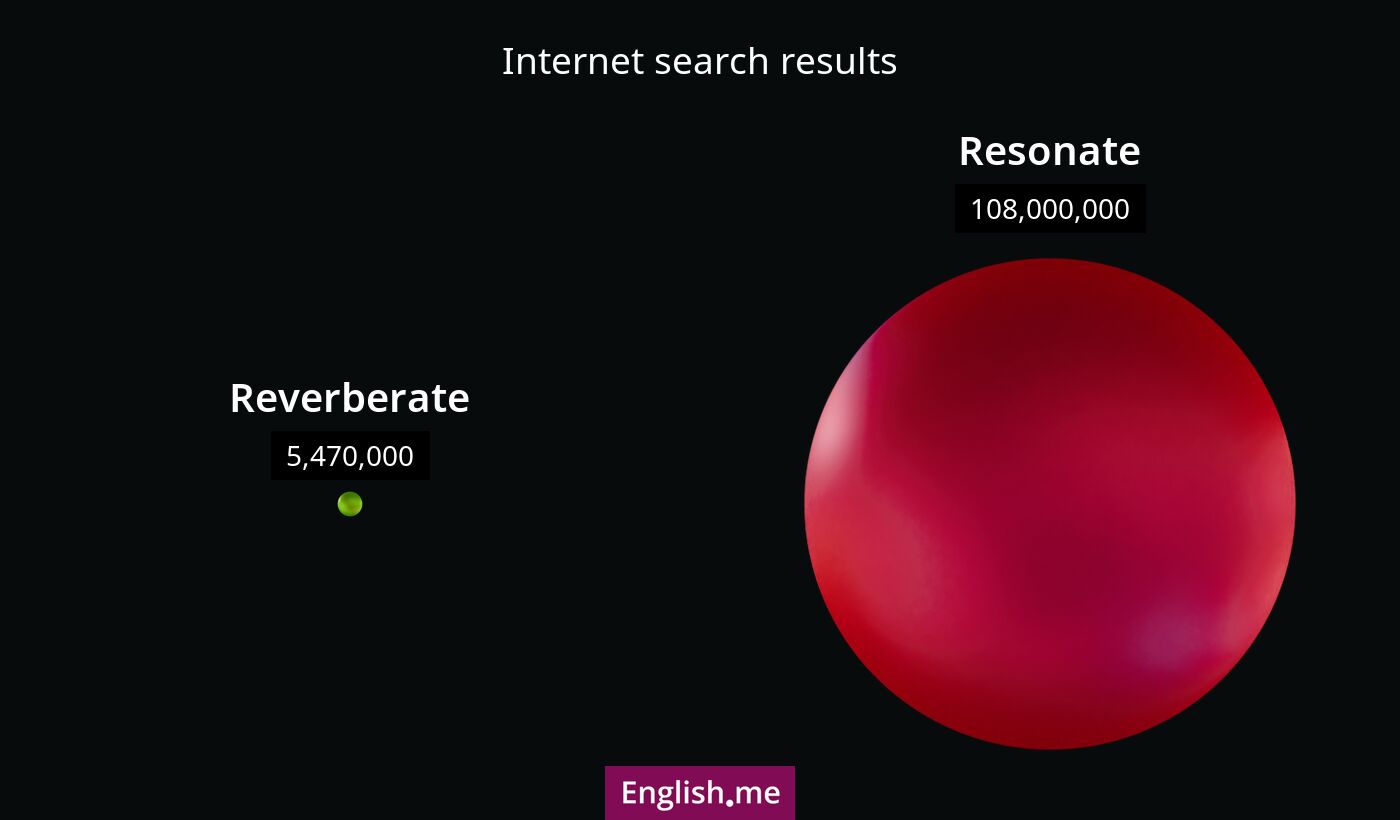Echoes and vibrations: exploring "reverberate" vs. "resonate"
Reviewed and edited by  Lloyd Cooper 10/10/2024, 04:35
Lloyd Cooper 10/10/2024, 04:35
English.me team member

 What is similar?
What is similar?
Both "reverberate" and "resonate" involve sound or vibration. They can describe physical phenomena as well as metaphorical or emotional impacts. Both words involve the concept of sounds reflecting or being amplified.
 What is different?
What is different?
"Reverberate" typically refers to the reflection, continuation, or echoing of sound, often within an enclosed space. It can also mean the persistent effects of an action or event. "Resonate", while also relating to sound, more often refers to the amplification and vibration of sound in sympathy with something else, or to the idea of something having a significant impact or meaning to someone.
 Which one is more common?
Which one is more common?

 Examples of usage
Examples of usage
Reverberate- The sound of the church bells reverberated through the valley.
- His voice reverberated in the empty hall.
- The impact of the decision reverberated across the community.
- Her words resonated with the audience.
- The music resonated in the concert hall, filling it with warmth.
- This particular piece of art resonates deeply with me.

 English
English español
español française
française italiano
italiano deutsche
deutsche 日本語
日本語 polski
polski česky
česky svenska
svenska Türkçe
Türkçe Nederlands
Nederlands